Iranian Nuclear Deal Threatened by Protests in Iran and Israel
Anti-government protests in both countries jeopardize the already shaky deal to limit Iran’s nuclear program.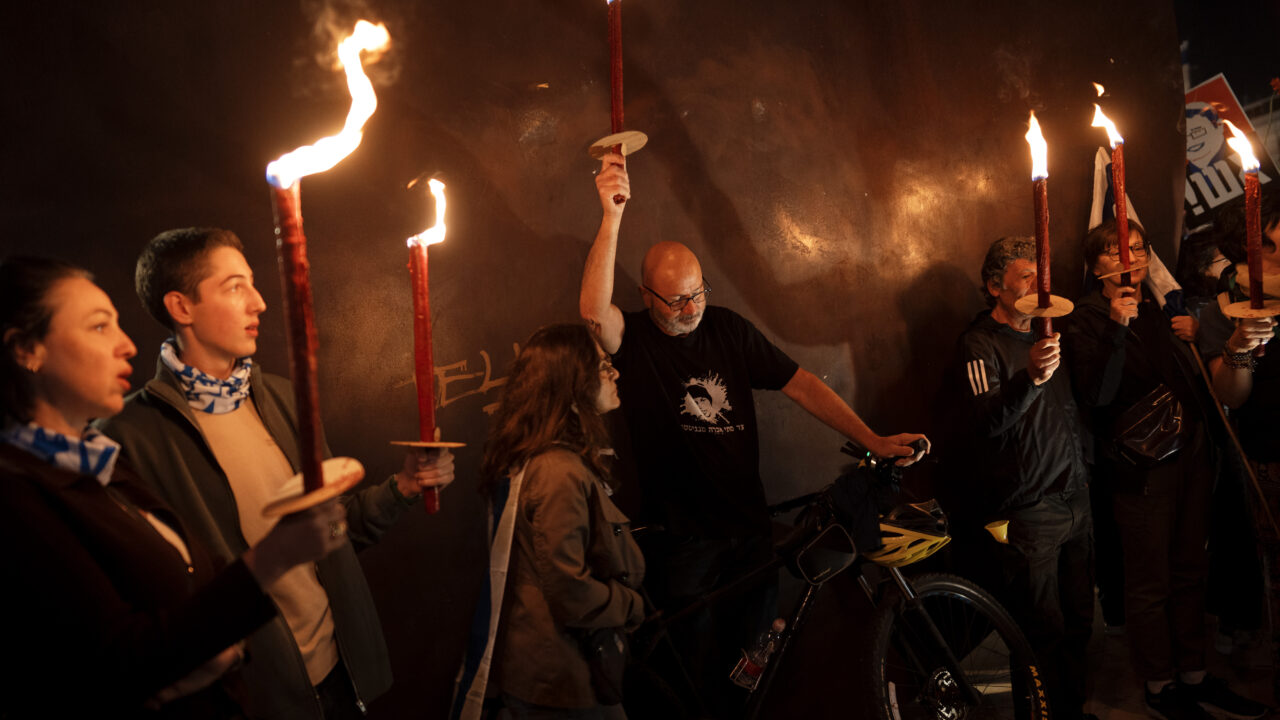 Demonstrators in Tel Aviv hold torches during protest against plans by Prime Minister Benjamin Netanyahu's government to overhaul the judicial system. Photo: Oded Balilty /AP.
Demonstrators in Tel Aviv hold torches during protest against plans by Prime Minister Benjamin Netanyahu's government to overhaul the judicial system. Photo: Oded Balilty /AP.
At the beginning of March, there were fears of a new crisis over the status of Iran’s nuclear programme following suspicions that the country was substantially exceeding the limits on uranium enrichment agreed under the 2015 Joint Comprehensive Plan of Action (JCPOA).
These fears abated after a visit to Tehran by Rafael Grossi, the director general of the International Atomic Energy Agency (IAEA), and there was talk of a breakthrough. Much now depends on whether Iran adheres to its agreement with Grossi, principally about increased transparency.
If relations between Iran and Western states were reasonable, there would be few concerns here, but the situation is complicated by the current political climate in three key countries: Iran itself, Israel and the United States.
There are deep-rooted social and political tensions in Iran. They stem largely from persistent and substantial efforts by the populace to curb the excessive power of religious leaders, especially in relation to women’s rights – efforts that are being met with often-violent repression.
Israel is consistently critical of Iran and sees its nuclear program as a potentially existential threat, but is going through political turmoil over the determination of its far-right government under newly re-elected prime minister Benjamin Netanyahu to increase the power of the state.
The determination of the new far-right government to limit the power of the judiciary while accelerating Israeli settlement of the occupied Palestinian territories has produced a forceful public reaction.
In the US, President Biden is under pressure from progressives (including many Jewish leaders) to be harder on Israel, while Republican right-wingers are leaning in the opposite direction and are adamantly opposed to the Tehran regime.
Behind all this lies the current status of the JCPOA itself. The 15-year agreement, made back in 2015 following years of discussion, had the support of Barrack Obama’s administration in the US, together with China, France, Germany, Russia and the UK – and Iran, of course. It set substantial limits on Iran’s enrichment of uranium to weapons-grade level, as well as other lesser measures, all verified by regular IAEA inspections and continuous monitoring. In return, Iran got relief from economic sanctions.
Although there were faults with the agreement, it was widely considered the best available, but it all fell apart when Obama’s successor, Donald Trump, withdrew the US from the JCPOA in May 2018 and imposed tighter sanctions on Tehran.
Since then, Iran has seen itself as something of a free agent not bound by the agreement, but, conscious of the views of other JCPOA states and the change of administration in the US, it has maintained tolerable relations with the IAEA.
It has not, however, abided fully with the deal, no doubt because it believes it should be in a position to move towards a nuclear capability at short notice – perhaps in the event of a Trumpist in the White House in two years’ time or Israeli military action sooner than that.
In January 2021, the IAEA reported that Iran was enriching uranium to 20% of the fissile U-235 isotope, well beyond what is required for nuclear power generation (around 4% U-235). There have been recent indications of even higher enrichment – as much as 84.5%, which is very close to weapons-grade (typically around 90%, depending partly on weapon design).
These were the sources of the current tensions that Grossi and the IAEA are working to overcome, but the national politics of both Israel and Iran are inevitably having their own effect.
Take Israel first. The determination of the new far-right government to limit the power of the judiciary while accelerating Israeli settlement of the occupied Palestinian territories has produced a forceful public reaction.
The backlash has even extended to the usually loyal Israeli armed forces, with some military reservists refusing to train. This includes the elite 69 Squadron – 37 out of 40 pilots said they would join public protests against the proposed changes rather than take part in training exercises. They later rescinded the decision apart from one day of action but this is the most glaring indication of wider opposition within the Israeli Defence Force to Netanyahu’s plans and exceeds anything seen in recent years.
A key intelligence and cyber group, Unit 8200, whose graduates The New York Times described as having “helped drive the country’s tech industry, as well as elite combat units” have also spoken out against the plans, while the head of Mossad, Israel’s domestic security agency, has approved a request from staff to take part in protests.
At the root of much of the unrest are possible future actions by the Netanyahu government, a concern that was not helped when the Israeli finance minister, Bezalel Smotrich, called for a Palestinian town in the West Bank to be wiped out for supporting recent violence.
The Israeli government sees itself as a legitimate, decades-old democracy that has been subject to a recent general election. That scenario may be recognized by most Israelis, but it draws hollow laughter from Palestinian Arabs within Israel and derision from those in the occupied territories.
The political situation and uncertainty in both Iran and Israel risk hugely complicating the future of the JCPOA agreement, resulting in an uncomfortably fluid and unpredictable environment.
As to its policy towards Iran, the Israeli government has certainly upheld its strong opposition to the Tehran regime, most recently accusing it of being behind February’s cyber attack on a leading Israeli technological research centre, the Technion.
Meanwhile, the Iranian government has faced months of protests across the country, despite heavy-handed and violent repression, including the killing of demonstrators, The main focus of the protests has been the treatment of women, but it goes beyond that to include entrenched opposition to routine standards of governance.
Widespread corruption coupled with maladministration and the siphoning-off of wealth and resources to the clergy and the Iranian Revolutionary Guard is deeply resented at a time of economic difficulty, even if those problems are due in part to the sanctions imposed by the US and its Western allies.
Iran should be a wealthy country with its copious oil and gas reserves – even if their shelf-life is going to be reduced by essential global decarbonisation over the next decade. Paradoxically, Iran may even benefit from such changes, now that extensive deposits of lithium (much needed in batteries) have reportedly been discovered.
The political situation and uncertainty in both Iran and Israel risk hugely complicating the future of the JCPOA agreement, resulting in an uncomfortably fluid and unpredictable environment. Much may depend on the attitude of the Biden administration and its willingness to persist with the deal. JCPOA has many faults, but it’s still the best option available – and far more preferable than a spiral into another conflict that could well have global repercussions, starting with energy prices.
Your support matters…Independent journalism is under threat and overshadowed by heavily funded mainstream media.
You can help level the playing field. Become a member.
Your tax-deductible contribution keeps us digging beneath the headlines to give you thought-provoking, investigative reporting and analysis that unearths what's really happening- without compromise.
Give today to support our courageous, independent journalists.

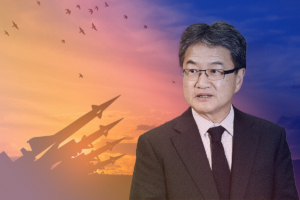


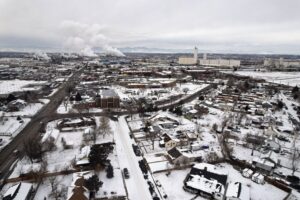
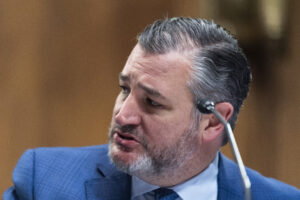
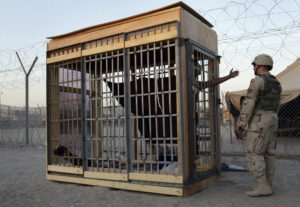


You need to be a supporter to comment.
There are currently no responses to this article.
Be the first to respond.